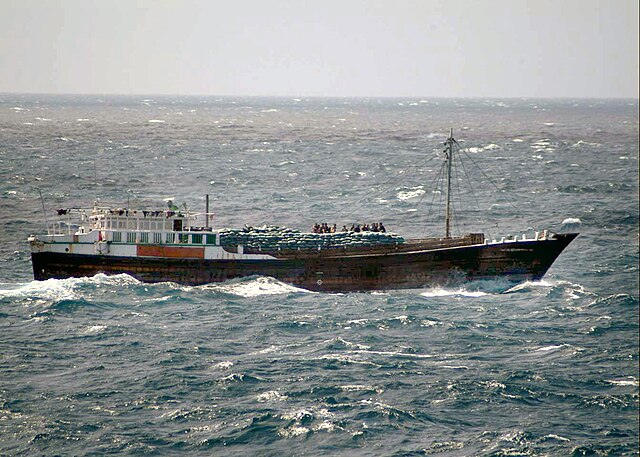Piracy in the Gulf of Guinea
Piracy in the Gulf of Guinea affects a number of countries in West Africa as well as the wider international community. By 2011, it had become an issue of global concern. Pirates in the Gulf of Guinea are often part of heavily armed criminal enterprises, who employ violent methods to steal oil cargo. In 2012, the International Maritime Bureau (IMB), Oceans Beyond Piracy and the Maritime Piracy Humanitarian Response Program reported that the number of vessels attacks by West African pirates had reached a world high, with 966 seafarers attacked during the year. According to the Control Risks Group, pirate attacks in the Gulf of Guinea had by mid-November 2013 maintained a steady level of around 100 attempted hijackings in the year, a close second behind the Strait of Malacca in Southeast Asia.
The Gulf of Guinea
Piracy in the Strait of Malacca
Piracy in the Strait of Malacca has long been a threat to ship owners and the mariners who ply the 900 km-long sea lane. In recent years, coordinated patrols by Indonesia, Malaysia, Thailand, and Singapore along with increased security on vessels have sparked a sharp downturn in piracy.
Strait of Malacca
A US merchant seaman takes aim during training to repel pirates in the Strait of Malacca, 1984.
Suspected pirates assemble on the deck of a dhow in waters off western Malaysia, January 2006.




